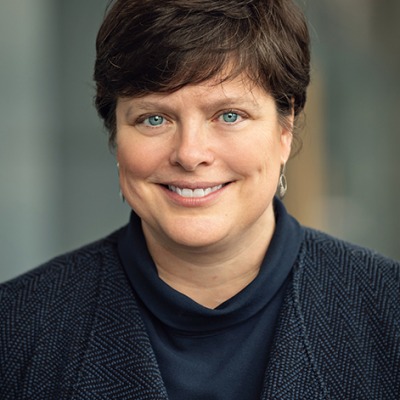Anna Mapp, Ph.D.


Much of Anna Mapp's research focuses upon developing a molecular-level picture of inducible gene expression in eukaryotes using organic molecules as mechanistic probes. Regulated gene expression is critical for cellular existence, and a number of human diseases such as cancer and diabetes have been linked to aberrant patterns of gene expression. Therefore, a goal of primary importance in the scientific community is the discovery of transcription-based therapeutics capable of reprogramming gene expression in diseased cells while leaving normal cells unaffected. While a general sequence of events that leads to gene up-regulation is agreed upon, the molecular-level interactions that regulate the levels and time course of transcriptional activation remain unknown. A more detailed picture of gene regulation is a prerequisite for the eventual development of transcription-based therapeutics.
Mapp focuses on two approaches for identifying the relevant targets of activator proteins in the transcriptional machinery: the design and synthesis of organic molecules that mimic common protein structural motifs such as the helix, and understanding how multiple activator proteins function synergistically to up-regulate transcription and uncovering the regulatory role of transcriptional machinery composition.
Anna Mapp completed her A.B. in chemistry at Bryn Mawr College before moving to the University of California-Berkeley to complete the Ph.D. under the direction of Professor Clayton H. Heathcock. Following postdoctoral work with Professor Peter B. Dervan at Caltech, Mapp joined the faculty at the University of Michigan in 2000. In addition to her role as a professor of chemistry, Mapp served as the director of the Program in Chemical Biology from 2010 to 2019 and is now the Associate Dean for Academic Programs and Initiatives at the U-M Rackham Graduate School.